As the CEO of an Early-Stage Tech Startup, navigating the complexities of fundraising can be a formidable challenge—especially in a down market. Understanding how central bank decisions affect the economic landscape is crucial for devising strategies that can lead to fundraising success. This article is tailored for you, offering a deep dive into the intricacies of monetary policy and providing actionable insights to help you secure the capital your startup needs to thrive.
Understanding Central Bank Decisions and Monetary Policy
Central banks, such as the Federal Reserve in the United States or the European Central Bank in the Eurozone, are pivotal in shaping the economic environment through their monetary policy decisions. These decisions revolve around setting interest rates and implementing policies that either stimulate or slow down economic activity. For startup CEOs, comprehending these moves is essential, as they directly influence investors' appetites, available capital, and the cost of borrowing money.
When a central bank opts for a tightening monetary policy, typically by raising interest rates, the aim is to curb inflation and cool down an overheating economy. However, this can have a tangible impact on your startup's ability to raise funds. Research indicates that after a tightening shock of 1 percentage point, spending on research and development declines by about 1%-3%, venture capital investment plummets by approximately 25%, and patenting in critical technologies falls by 9%.
The Direct Impact of Monetary Policy on Fundraising and Innovation
The relationship between central bank interest rates and the activities of venture capitalists (VCs) is intricate. When interest rates rise, it becomes more expensive to borrow money, which can lead to a decrease in overall investment. However, there's a flip side. Higher interest rates are also associated with higher demand for venture capital by entrepreneurs and increased fundraising activity by VC firms. This is because traditional forms of borrowing become less attractive, and companies seek alternative funding sources.
Understanding this delicate balance is key. As a startup CEO, you must be cognizant of these dynamics to time your fundraising efforts effectively. It's not just about the availability of funds; it's about the cost of capital and the competition for those funds. A tightening in monetary policy can signal a more competitive environment for venture capital, making your fundraising efforts more challenging but not impossible.
Strategies for Fundraising in a Tightening Monetary Environment
Facing a scenario where central bank policies are making capital more expensive and less abundant, you need a strategic approach to fundraising. Here are some considerations:
- Anticipate Interest Rate Changes: Keep a close eye on economic indicators and central bank announcements. If you're planning a fundraising round and central bank tightening seems imminent, you may want to accelerate your efforts before the full impact of policy changes hits the market.
- Diversify Your Funding Sources: Don't put all your eggs in one basket. Explore a mix of funding sources, from angel investors to government grants, and consider alternative financing models like revenue-based financing or strategic partnerships.
- Timing Is Everything: The timing of your fundraising rounds can be as critical as the amount you're looking to raise. Understanding the economic cycle and investor sentiment can help you choose the right moment to seek funding.
By considering these strategies, you're not just reacting to policy changes; you're proactively positioning your startup to thrive despite them.
Leveraging Central Bank Trends for Fundraising Success
For savvy startup CEOs, central bank decisions can provide valuable signals that guide fundraising strategies. By interpreting central bank trends, you can better predict market conditions and adjust your approach accordingly.
For instance, a period of low-interest rates, often seen as favorable for economic growth, might seem like an ideal time to seek venture capital. However, this is also when competition for VC funding can be at its highest. Conversely, during periods of higher interest rates, while the cost of borrowing increases, the demand for venture capital by entrepreneurs also rises, leading to more fundraising activity by VC firms. This insight can help you tailor your pitch to investors, emphasizing the strength of your business model in a more competitive funding landscape.
The key lies in understanding that while high-interest rates typically signal a challenging fundraising environment, they also indicate a robust demand for venture capital. This dichotomy can be leveraged to your advantage if approached with the right strategy. For example, you might focus on sectors that are less interest-rate sensitive or pitch your startup as a solution to challenges posed by the current economic climate.
In the next section, we will explore practical steps that you, as the CEO of an early-stage tech startup, can take to navigate the complexities of central bank decisions and secure the capital you need to fuel your company's growth. Understanding the ebb and flow of the venture capital market is critical, particularly when navigating through periods of high-interest rates. During such times, it's important to note that the dynamics of the venture capital world shift—entrepreneurs' demand for capital increases and VC firms may ramp up their fundraising activities. This phenomenon suggests a counterintuitive effect wherein higher rates don't necessarily dry up venture capital sources but may actually increase the competition for them. By tapping into this insight, you can better position your startup in a market that’s hungry for innovative ideas and strong investment opportunities.
Practical Steps for Early-Stage Tech Startups
As a leader at the helm of a burgeoning tech startup, the following key actions should be integral to your strategy for weathering the impact of central bank policy changes:
- Monitor Economic Forecasts and Central Bank Announcements: You need to stay informed about the direction in which monetary policy is headed. This foresight enables you to plan and adjust your fundraising strategy accordingly.
- Engage with Financial Experts for Tailored Advice: Building relationships with financial advisors who understand the tech startup landscape can provide you with customized insights, helping you to navigate the complexities of monetary policy.
- Consider Alternative Funding Options: Don't limit your search for capital to conventional venture capital. Explore strategic partnerships, grants, and crowdfunding. These alternative sources can provide the funding you need, often with fewer strings attached.
Your startup’s ability to survive and thrive depends on a resilient business model that can adapt to economic shifts. During times of monetary tightening, it’s crucial to demonstrate to potential investors that your startup has a clear path to profitability and a plan for sustainable growth, regardless of the funding climate.
Case Studies and Real-World Examples
To illustrate the practical application of these strategies, let’s consider successful startups that secured funding despite challenging monetary conditions. These companies focused on their core competencies, leveraged their networks, and communicated a clear, compelling vision to investors. They also optimized their operations for efficiency, ensuring that every dollar raised was used effectively to drive growth and innovation.
Conclusion
Deciphering central bank decisions is more than an intellectual exercise—it’s a fundamental aspect of strategic planning for any early-stage tech startup looking to raise capital. By understanding how these decisions impact the fundraising landscape, you can make informed choices that align with your company’s goals and the current economic climate.
Being proactive, adaptable, and well-informed are key traits that will serve you well as you steer your startup through the choppy waters of venture capital fundraising. Remember, central bank policies may set the stage, but it’s your actions and decisions that will ultimately determine your fundraising success.
Appendix: Supporting Data and Additional Resources
For further exploration, here is a relevant table illustrating the relationship between interest rates and venture capital activity:
| Central Bank Interest Rate Changes | Impact on R&D Spending | Impact on Venture Capital Investment | Impact on Patenting |
|---|---|---|---|
| Tightening of 1 percentage point | Decline of 1%-3% | Decline of about 25% | Decline of 9% |
Call to Action
We invite you to subscribe to ThinkFish Capital Services for updates on economic trends and investment strategies that can empower your startup. If you're seeking personalized guidance, consider signing up for our upcoming webinar on navigating monetary policy in the venture capital landscape.
In the end, understanding central bank decisions is essential for your startup's fundraising success. With the insights and strategies outlined in this guide, you're now better equipped to decode these decisions and take the right steps toward securing the capital your startup needs to flourish.

